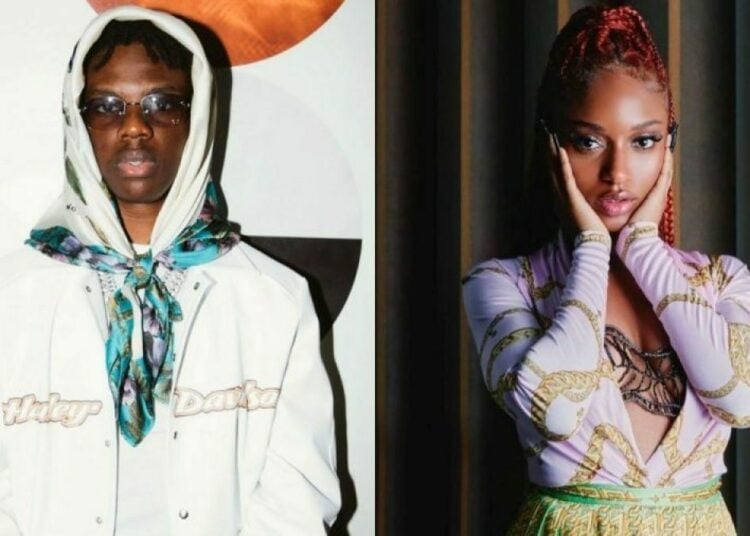Global K-Pop Domination Ignored by Grammys? A Critical Look

The narrative of popular music over the last 15 years is inextricably linked to the remarkable ascent of Korean pop (K-pop) from a potent yet primarily insular industry to a global phenomenon that transcends borders. This transformation began with PSY’s groundbreaking viral hit “Gangnam Style” in the early 2010s, and exploded with the sustained superstardom of groups like BTS and Blackpink, along with their members’ successful solo careers, over the past decade. In the United States, K-pop has evolved from a niche fandom into a significant element of the pop music landscape, boasting chart-topping songs and albums, sold-out stadium tours, and millions of dedicated followers.
However, despite this widespread success, K-pop still lacks major representation at Music’s Biggest Night, the Grammy Awards. While the Recording Academy has recently made efforts to expand the global reach of the Grammys, introducing new categories such as best African music performance (in 2024) and renaming música mexicana (in 2024) to reflect the growing stateside presence of these genres, K-pop—a consistent presence on the Billboard charts for a decade—remains without its own dedicated Grammy category.
Recording Academy CEO Harvey Mason Jr. confirms that conversations about a K-pop category have been ongoing for years, acknowledging the music’s prevalent global impact and resonance. He identifies the primary challenge in establishing such a category as ensuring that the Academy’s membership possesses the necessary expertise to evaluate K-pop music accurately. Mason warns that without sufficient members knowledgeable in the genre, a new category could misrepresent the music, leading to inaccurate or irrelevant outcomes. To address this, the Academy has intensified its outreach to the Korean pop community, encouraging creators, writers, producers, and performers to join its ranks to ensure proper category definition and evaluation.
Part of the difficulty in defining a K-pop category stems from whether it should be considered a distinct genre or merely an umbrella term for popular music originating from Korea. In a 2021 Billboard article, then-Recording Academy chief awards officer Bill Freimuth suggested that the multifaceted nature of K-pop meant it was best suited for existing pop categories, stating, “What we’ve heard from the community is that they consider what they are creating to [simply] be pop music.” The article also highlighted a low submission volume at the time, with only 14 K-pop submissions for that year’s ceremonies, representing less than 1.5% of the overall pop field—a number far below what the Academy typically requires to consider a new category.
Jeremy Erlich, founder of ALTA Music Group, expresses concern that a K-pop category could become a “dumping ground” for all music from that world. He cites Bad Bunny, a crossover superstar whose Grammy wins have primarily been in Latin pop and música urbana, despite a 2023 Album of the Year nomination, suggesting that artists aim for universal recognition, not just within a genre-specific category. Yet, Korean pop music has received scant recognition in the broader pop or general categories at the Grammys. While BTS made history with three consecutive nominations for Best Pop Duo/Group Performance (for “Dynamite” in 2021, “Butter” in 2022, and “My Universe” with Coldplay in 2023, the latter also contributing to an Album of the Year nomination for Coldplay’s *Music of the Spheres*), they lost in all categories, and no other Korean pop artists have joined them in these specific nominations since.
In the four years since that 2021 article, K-pop’s integration into the U.S. music industry has deepened significantly. Erlich notes an exponential growth in Korean repertoire on U.S. label rosters, likely corresponding to an increase in Grammy submissions. This period has also seen a surge in cross-pollination between Western and Korean artists, leading to high-profile collaborations such as Jung Kook with Latto, and Lisa with RAYE and Doja Cat. American writers, producers, and other behind-the-scenes industry figures are increasingly working with K-pop stars. Amanda Hill, co-chief creative officer of Runner Music, has facilitated collaborations between American creatives and K-pop hit-makers like Lisa and Tomorrow x Together. Runner co-founder Ryan Tedder even partnered with HYBE to form and train a new global boy group. Hill observes that while K-pop has long had a presence in the American recording industry, key Korean industry players have only recently established a physical presence in Los Angeles, indicating a shift from purely email-based relationships.
K-pop’s stateside exposure has further exploded in the past year, driven by the global crossover success of Rosé and Bruno Mars’ Billboard Global 200-topping collaboration “APT.”; the top-10 solo album successes of Blackpink members Rosé, Lisa, and Jennie on the Billboard 200; and particularly, the massive phenomenon of “KPop Demon Hunters,” Netflix’s animated superhero musical set in a fictional K-pop universe. The film’s soundtrack, released in June, became a Billboard 200-topping smash, and its breakout hit, “Golden”—credited to HUNTR/X, the movie’s fictional superstar group voiced by real-life Korean-heritage artists EJAE, Audrey Nuna, and Rei Ami—achieved a seven-week run at No. 1 on the Billboard Hot 100. Torsten Ingvaldsen, an independent A&R executive, highlights “KPop Demon Hunters” as a testament to the lifestyle surrounding K-pop and its growing respect.
Tracks like “APT.,” along with “Golden” and its parent album (which features real-life K-pop group TWICE), are seen as potentially prominent enough to penetrate the pop and/or general categories at the 2026 Grammys. However, should they be overlooked, it could intensify pressure on the Recording Academy to reconsider a dedicated K-pop category to ensure adequate representation. Ultimately, the addition of any new category typically requires sustained advocacy from Academy insiders. Hill suggests it would take “a committed collection of people to make themselves heard,” drawing a parallel to the years-long effort that led to the introduction of the Songwriter of the Year category in 2023.
As global pop music continues to spread, Hill also contemplates whether a K-pop-specific category might be too narrow, proposing a broader “Asian pop” category that encompasses music from Japan, China, and other Asian countries. She believes such an inclusive category would better reflect the current era where great music originates from all corners of the world. Mason Jr.’s personal connection to Korean pop music, having been one of the first American producers to work in Korea 15 years ago, serves as a motivating factor for him to ensure more global music, particularly from that region, is celebrated at the Grammys.
You may also like...
Haaland's UCL Rampage: Brace, Record, and X-Rated Fury Rocks European Football!

Manchester City were held to a frustrating 2-2 draw against Monaco in the Champions League, despite Erling Haaland's two...
Manchester United's Managerial Maze: Amorim on the Brink, Solskjaer's Ghost Looms

Ruben Amorim faces unprecedented pressure at Manchester United as inconsistent results and a low Premier League standing...
Real-Life Couple Justin Long & Kate Bosworth Unleash 'Coyotes' Horror Comedy, Securing UK Deal

Real-life partners Justin Long and Kate Bosworth star in the new horror comedy and survival thriller “Coyotes,” a film t...
Kenyan Star Bahati Ignites Firestorm with Provocative New 'Seti' Track!

Bahati has ended his musical hiatus with the controversial new song "Seti," featuring explicit content that deviates fro...
Global K-Pop Domination Ignored by Grammys? A Critical Look

Korean pop music has achieved global megaforce status, dominating charts and captivating millions of fans worldwide. Des...
One Direction Reunites! Global Pop Idols Confirm Massive New Project

One Direction stars Louis Tomlinson and Zayn Malik are reportedly reuniting for a Netflix road trip documentary, set to ...
Royal Arrival: Victor & Henrietta Thompson Welcome Baby Princess Zivah!

Gospel singer Victor Thompson and his wife, Henrietta, have joyfully welcomed their baby girl, Zivah Ufuoma Tamunopakiri...
Viral Sensation: M&S 'Cuddle' Jumper Takes Autumn by Storm at Just £26

Discover the M&S Textured Crew Neck Jumper, a viral sensation perfect for colder days. Praised for its luxurious feel, v...



